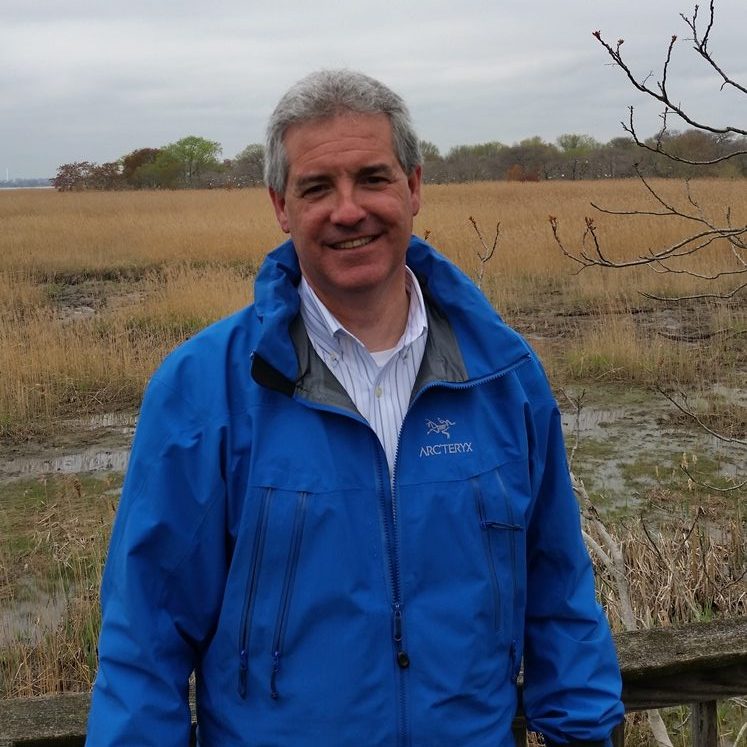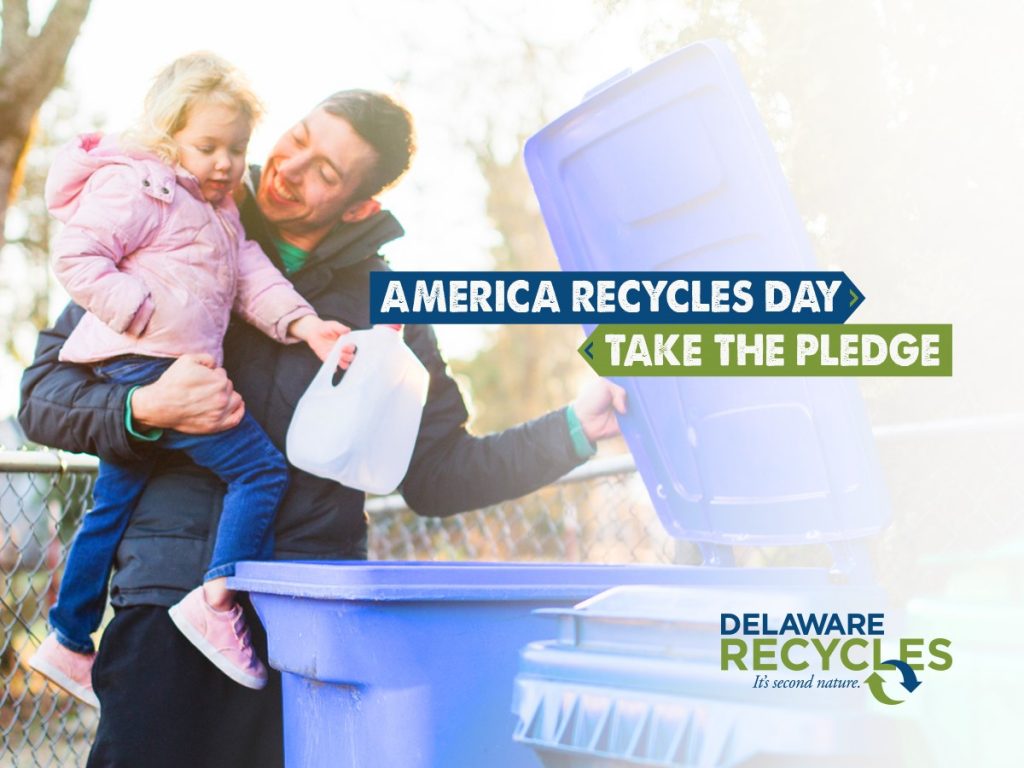By Shawn Garvin
 Single-stream recycling became the “new normal” in Delaware in 2010. Since then, it’s been easier to make recycling a regular part of our daily lives. By recycling, we’re helping turn office paper into paper towels and water bottles into fleece vests. Processing recyclable items into new products uses less energy and generates fewer emissions than processing non-recycled materials for the same purposes. As a result, we’re reducing our greenhouse gas emissions by nearly 200,000 metric tons, equal to what’s produced by more than 150,000 vehicles.
Single-stream recycling became the “new normal” in Delaware in 2010. Since then, it’s been easier to make recycling a regular part of our daily lives. By recycling, we’re helping turn office paper into paper towels and water bottles into fleece vests. Processing recyclable items into new products uses less energy and generates fewer emissions than processing non-recycled materials for the same purposes. As a result, we’re reducing our greenhouse gas emissions by nearly 200,000 metric tons, equal to what’s produced by more than 150,000 vehicles.
Recycling in Delaware saves 433,000 tons of waste from going into our landfills. Our statewide diversion rate – the amount of waste being diverted from landfills – is currently at 39%.
However, our contamination rate – nonrecyclable items that end up in the recycling stream – is also on the rise. Over the past six months, Delaware’s contamination rate has grown from 16 to 21%.
We’re fortunate more of us are making efforts to recycle. Doing the right thing is important. But equally important is for everyone to recycle the right way. Rinsing out your yogurt cup or taking the Styrofoam out of the box are examples of recycling “right.” If you skip these steps, these items are more likely to end up in the trash. On the other hand, doing it right, can have a huge impact.
 November 15 marks America Recycles Day, during which we’re all asked to pledge to “Learn. Act. Share.” The goal is to increase recycling efforts nationwide. In Delaware, there are plenty of opportunities for us to make a difference, right now, through proper recycling.
November 15 marks America Recycles Day, during which we’re all asked to pledge to “Learn. Act. Share.” The goal is to increase recycling efforts nationwide. In Delaware, there are plenty of opportunities for us to make a difference, right now, through proper recycling.
That’s why the Department of Natural Resources and Environmental Control (DNREC) is mobilizing our residents to take the observance one step further by focusing education and action to lower the statewide recycling contamination rate.
We can start by identifying our top contamination culprits and Learn how to properly recycle. And then we should Act to do just that.
Here are some tips:
We’re fortunate more of us are making efforts to recycle. Doing the right thing is important. But equally important is for everyone to recycle the right way.
 Achieving zero contamination in your recycling comes down to a four-word mantra: loose, empty, clean and dry. Deposit items loosely in bins, without bagging. Ensure all containers are empty, cleaned and dried.
Achieving zero contamination in your recycling comes down to a four-word mantra: loose, empty, clean and dry. Deposit items loosely in bins, without bagging. Ensure all containers are empty, cleaned and dried.
Lastly, the final call to action of America Recycles Day: Share. Show family and neighbors how to properly recycle and work with them to help prevent contamination.
Otherwise, even if you recycle the right way, your recyclables and good intentions can end up in the wrong place. So, let’s all recycle – the right thing, the right way.
I encourage you to take time to learn more at de.gov/recycling.
Related Topics: conservation, people, recycling